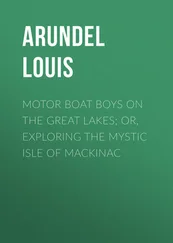James Curwood - The Great Lakes.The Vessels That Plough Them
Здесь есть возможность читать онлайн «James Curwood - The Great Lakes.The Vessels That Plough Them» — ознакомительный отрывок электронной книги совершенно бесплатно, а после прочтения отрывка купить полную версию. В некоторых случаях можно слушать аудио, скачать через торрент в формате fb2 и присутствует краткое содержание. Жанр: foreign_language, foreign_prose, на английском языке. Описание произведения, (предисловие) а так же отзывы посетителей доступны на портале библиотеки ЛибКат.
- Название:The Great Lakes.The Vessels That Plough Them
- Автор:
- Жанр:
- Год:неизвестен
- ISBN:нет данных
- Рейтинг книги:4 / 5. Голосов: 1
-
Избранное:Добавить в избранное
- Отзывы:
-
Ваша оценка:
- 80
- 1
- 2
- 3
- 4
- 5
The Great Lakes.The Vessels That Plough Them: краткое содержание, описание и аннотация
Предлагаем к чтению аннотацию, описание, краткое содержание или предисловие (зависит от того, что написал сам автор книги «The Great Lakes.The Vessels That Plough Them»). Если вы не нашли необходимую информацию о книге — напишите в комментариях, мы постараемся отыскать её.
The Great Lakes.The Vessels That Plough Them — читать онлайн ознакомительный отрывок
Ниже представлен текст книги, разбитый по страницам. Система сохранения места последней прочитанной страницы, позволяет с удобством читать онлайн бесплатно книгу «The Great Lakes.The Vessels That Plough Them», без необходимости каждый раз заново искать на чём Вы остановились. Поставьте закладку, и сможете в любой момент перейти на страницу, на которой закончили чтение.
Интервал:
Закладка:
Thus ends the building of the ship, with the exception of what is known as her “deck work,” the fitting of her luxurious cabins, the placing of her engines, and a score of other things which are done after she is afloat. She is now a “carrier” of the Lakes. A little longer and captain and crew take possession of her, clouds of bituminous smoke rise from her funnels, and with flying pennants and screaming whistles she turns her nose into the great highway that leads a thousand miles into the North – to the land of the ore kings.
II
What the Ships Carry – Ore
Picture a train of forty-ton freight cars loaded to capacity, the engine and caboose both in New York City, yet extending in an unbroken line entirely around the earth – a train reaching along a parallel from New York to San Francisco, across the Pacific, the Chinese Empire, Turkestan, Persia, the Mediterranean, mid the Atlantic – and you have an idea of what the ships of the Great Lakes carry during a single eight months’ season of navigation. At least you have the part of an idea. For were such a train conceivable, it would not only completely engirdle the earth along the fortieth degree of north latitude, but there would still be something like two thousand miles of it left over. In it would be two million five hundred thousand cars, and it would carry one hundred million tons of freight! Were this train to pass you at a given point at the rate of twenty miles an hour, you would have to stand there forty days and forty nights to see the end of it.
Only by allowing the imagination to paint such a picture as this can one conceive to any degree at all the immensity of the freight traffic on our Inland Seas.
“A hundred million tons,” repeated the mayor of one of our Lake ports when I told him about it recently. “A hundred million tons! That’s quite a lot of stuff, isn’t it?”
Quite a lot of stuff! It might have been a hundred million bushels and he would have been equally surprised. His lack of enthusiasm does not discredit him. He does not own ships; neither does he fill them. He is like the vast majority of our millions, who have never given more than a passing thought to that gigantic inland water commerce which has largely been the making of the nation. It did not dawn on him that it meant more than a ton for every man, woman, and child on this North American continent; that in dollars it counted billions; that on it depended the existence of cities; that largely because of it foreign nations acknowledged our commercial prestige.
No other hundred million tons of freight in all the world is as important to Americans as this annual traffic of the Great Lakes. To move it requires the services of nearly three thousand vessels of all kinds, employing twenty-five thousand men at an aggregate wage of thirteen million dollars a year. A million working people are fed and clothed and housed because of the cargoes this huge argosy carries from port to port.
It is impossible to say with accuracy how this hundred million tons of freight is distributed and of what it consists. Only at the Soo and at Detroit are records kept of passing tonnage, so the figures which are given showing the tremendous commerce that passes these places do not include the enormous tonnage which is loaded and emptied without passing through the Detroit River or the Sault Ste. Marie canals. The Detroit River is the greatest waterway of commerce in the world, and in 1906 there passed through it over sixty million tons, or more than three fifths of the total tonnage of the Lakes. Of this about a quarter moved in a northerly direction and three quarters toward the cities of the East. The principal item of the up-bound traffic was 14,000,000 tons of coal, of the south-bound 37,513,600 tons of iron ore, 110,598,927 bushels of grain, 1,159,757 tons of flour, 14,888,927 bushels of flaxseed, and over 1,000,000,000 feet of lumber. In 1907, there was a big increase, the commerce passing through the Detroit River being over 75,000,000 tons.
“And when you are figuring out what the ships carry, be sure and don’t leave out the smoke!” said the captain of an ore carrier, pointing over our port to a black trail half a mile long. “Never thought of it, did you? Well, last year our Lake ships burned three million tons of coal. Think of it! Three million tons – enough to heat every home in Chicago for two years!”
But in this chapter I am not going to deal with smoke; neither with the grain that feeds nations, nor the lumber that builds their homes. They will be described in their time. The backbone of American manufacturing industry – the mainspring of our commercial prestige abroad – is iron; and it is this iron, gathered in the one-time wildernesses of the Northland and brought down a thousand miles by ship, that stands largely for the greatness of the Lakes to-day. “Gold is precious, but iron is priceless,” said Andrew Carnegie. “The wheels of progress may run without the gleam of yellow metal, but never without our ugly ore.” And the Lake country, or three little patches of it, produce each year nearly a half of the earth’s total supply of iron. Farmers in the wake of their ploughshares, our millions of workers in metal, and our other millions whose fingers daily touch the chill of iron have never dreamed of this. Few of them know that eight hundred great vessels are engaged solely in the iron ore traffic; that in a single trip this immense fleet can transport more than three million tons, and that in 1907, they brought to the foundries of the East and South over forty-one million tons. If every man, woman, and child, savage or civilised, that inhabits this earth of ours were to receive equal portions of this one product carried by Lake vessels in 1907, each person’s share would be forty pounds! And still the world is crying for iron. There is not enough to supply the demand, and there never will be. The iron ore traffic of the Lakes has doubled during the last six years; it will double again during the next ten – and iron will still be the most precious thing on earth.
If the iron ore mines of the North were to go out of existence to-morrow nearly half of the commerce of the Inland Seas would cease to be. With it would go the strongest men of the Lakes. For our iron has made iron men. In that Northland, along the Mesaba, Goebic, and Vermilion ranges, from Duluth’s back door to the pine barrens of northern Michigan and Wisconsin, they have practically made themselves rulers of the world’s commerce in steel and iron. To follow the great ships of the Lakes over their northward trail into this country is to enter into realms of past romance and adventure which would furnish material for a hundred novels. But people do not know this. The picturesque days of ’49, the Australian fever, and the Klondike rush are as of yesterday in memory – but what of this Northland, where they load dirty ore into dirty ships and carry it to the dirty foundries of the East? Ask Captain Joseph Sellwood; ask the “three Merritts,” Alfred, Leonidas, and N. B.; or John Uno Sebenius, David T. Adams, and Martin Pattison; ask any one of a score of others who are living, and who will tell you of the days not so very long ago when the iron prospectors went out with packs on their backs and guns in their hands to seek the “ugly wealth.” These are of the old generation of “iron men” – the men who suffered in the days of exploration and development in the wilderness, who starved and froze, who survived while companions died, who suffered adventures and hardships in the death-like grip of Northland winters that rival any of those in Klondike history. And the new generation that has followed is like them in “the strength of man” that is in them. They are a powerful breed, these iron kings, down to the newest among them; men like Thomas F. Cole, who rose from nothing to a position of power and wealth, and W. P. Snyder, the poverty-stricken Methodist minister’s son, who has fought the Steel Corporation to a standstill and who is talked of as its president of the future.
Читать дальшеИнтервал:
Закладка:
Похожие книги на «The Great Lakes.The Vessels That Plough Them»
Представляем Вашему вниманию похожие книги на «The Great Lakes.The Vessels That Plough Them» списком для выбора. Мы отобрали схожую по названию и смыслу литературу в надежде предоставить читателям больше вариантов отыскать новые, интересные, ещё непрочитанные произведения.
Обсуждение, отзывы о книге «The Great Lakes.The Vessels That Plough Them» и просто собственные мнения читателей. Оставьте ваши комментарии, напишите, что Вы думаете о произведении, его смысле или главных героях. Укажите что конкретно понравилось, а что нет, и почему Вы так считаете.












